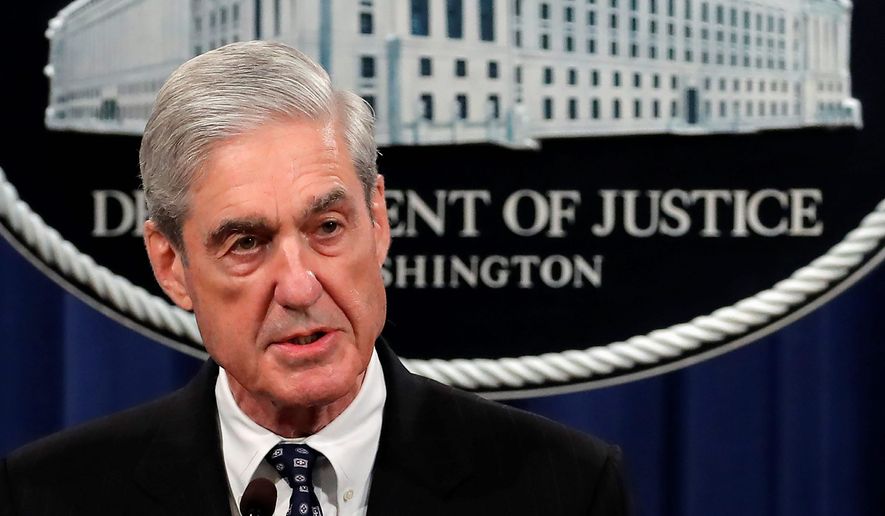Congressional Democrats say former special counsel Robert Mueller’s report on President Trump is damning — but not enough people have read it to be outraged.
Their answer, they say, is to get Mr. Mueller to appear for a high-profile session of testimony.
Back in Washington after a 10-day vacation, many Democrats brushed aside Mr. Mueller’s pleas to be left alone, saying his personal testimony is critical to figuring out whether to begin impeachment proceedings.
“I understand his impulse to say the work should speak for itself — I wish that everybody could read it,” said Rep. Jamie Raskin, Maryland Democrat and a member of the House Judiciary Committee. “I wish it were on everybody’s doorstep, but it’s not like that, so we may need him to come forward to restate the basic findings.”
Others said Mr. Mueller’s testimony could be what they need to make their case that the president broke the law.
“He’s the best evidence,” said Rep. Steve Cohen, a Tennessee Democrat who also sits on the Judiciary Committee. “For once, he needs to make it clear that President Trump obstructed justice.”
Democratic Caucus Chairman Hakeem S. Jeffries of New York said bringing Mr. Mueller to Capitol Hill is a “strongly held view” in the party and that the Judiciary Committee is in discussions on how to proceed.
Mr. Mueller made clear last week that he wants to be finished with the investigation he led into President Trump and Russian efforts to subvert the 2016 election.
He delivered a stunning statement at the Justice Department announcing his departure and saying his 448-page report spoke for itself.
“I hope and expect this to be the only time that I will speak about this matter,” he said. “The report is my testimony. I would not provide information beyond that which is already public in any appearance before Congress.”
Mr. Raskin said, though, that Democrats don’t need to hear new information and want Mr. Mueller to go over his report in a more TV-friendly venue.
House Majority Leader Steny H. Hoyer, Maryland Democrat and one of the first to call for Mr. Mueller to testify even after his press conference last week, argued that there were details that could be fleshed out only in a back-and-forth.
“Questioning is an important fact-finding pursuit,” Mr. Hoyer said.
The chamber’s second-ranking Democrat was also open to subpoenaing Mr. Mueller if necessary.
“He may want a subpoena, in which case I think we ought to issue a subpoena,” Mr. Hoyer said. “And if he won’t testify, I think we ought to issue a subpoena anyway.”
Judiciary Committee Chairman Jerrold Nadler, a New York Democrat who indicated last week that Mr. Mueller’s public statement may have given Democrats all the ammunition they needed, this week declined to say whether he will still seek to have Mr. Mueller testify.
Several members of the Judiciary Committee said they hope Mr. Mueller’s office will reach a deal voluntarily and doubt they will have to use their subpoena powers to compel him to testify.
“I don’t think that will be necessary,” Mr. Cohen said. “He doesn’t want to testify, but he’s also an honorable American, who if asked to come eventually will come, and I don’t think it will require a subpoena. I don’t think he will try be like [Don] McGahn and [William] Barr and Hope Hicks and do what Trump wants him to do.”
Mr. Nadler also plotted a path for hearings on Mr. Mueller’s work, beginning next week with a session featuring John Dean, the White House’s chief attorney under President Nixon, who resigned under threat of impeachment.
House Speaker Nancy Pelosi, California Democrat, has repeatedly noted while criticizing Mr. Trump for refusing to cooperate with Congress that the Nixon impeachment effort centered on that very charge.
“This Trump presidency is worse than the Nixon presidency,” Mr. Cohen said.
• Gabriella Muñoz can be reached at gmunoz@washingtontimes.com.




Please read our comment policy before commenting.